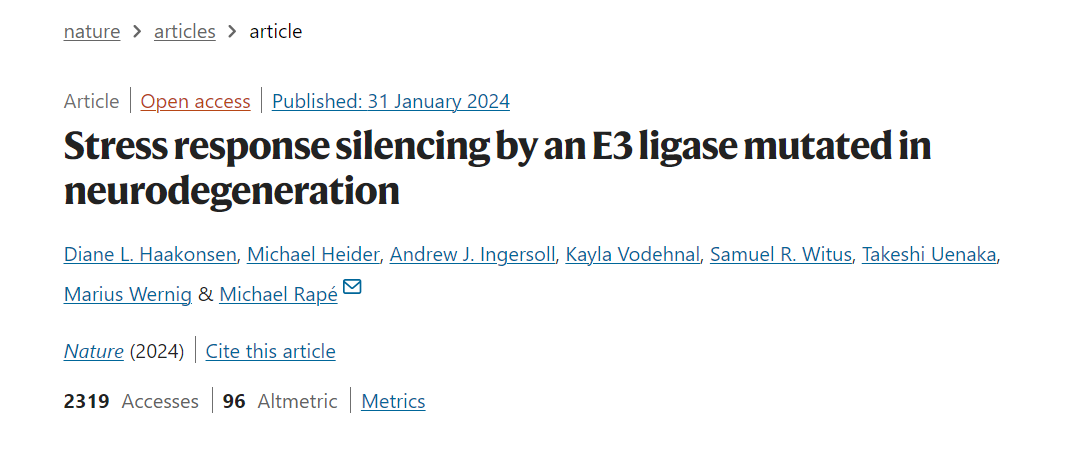INSIGHT of Medicine(phase 5,2024)
1.Stress response silencing by an E3 ligase mutated in neurodegeneration

This study reveals a ubiquitin-dependent mechanism that maintains cells in a quiescent state in response to stress caused by the import of mitochondrial proteins. A crucial component of this mechanism is the silencing factor of the Synthesis of Iron-Sulfur cluster (SIFI), which is a large E3 ligase complex mutated in ataxia and early-onset dementia. SIFI has the ability to degrade unimported mitochondrial precursors and stress response components, offering a potential avenue for treating neurodegenerative diseases resulting from defects in mitochondrial import.
For more comprehensive insights, please refer to the original text.
https://doi.org/10.1038/s41586-023-06985-7
https://www.nature.com/articles/s41586-023-06985-7
2.Matrix viscoelasticity promotes liver cancer progression in the pre-cirrhotic liver
Type 2 diabetes is a major risk factor for hepatocellular carcinoma (HCC), characterized by the accumulation of advanced glycation end products (AGEs) in the extracellular matrix (ECM). Previous studies have indicated that alterations in ECM mechanics contribute to cancer progression. However, the findings from this article's animal study and 3D cell culture experiments suggest that AGE-mediated structural changes enhance the viscoelasticity of ECM, thereby promoting cancer progression in vivo.
For more comprehensive insights, please refer to the original text.
DOI: https://doi.org/10.1038/s41586-023-06991-9
https://www.nature.com/articles/s41586-023-06991-9
3.A dedicated hypothalamic oxytocin circuit controls aversive social learning
The present study identified the expression of oxytocin receptors in two specific brain regions, namely the suprachiasmatic nucleus of the optic chiasm (SOROXT) and cells within the anterior ventromedial hypothalamus (aVMHvlOXTR), as crucial circuitry themes underlying failure-induced social avoidance in mice. These experiments shed light on a neural process that facilitates rapid social learning following failure and underscored the pivotal role of the brain's oxytocin system in promoting social plasticity.
For more comprehensive insights, please refer to the original text.
DOI: https://doi.org/10.1038/s41586-023-06958-w
https://www.nature.com/articles/s41586-023-06958-w




Post comments